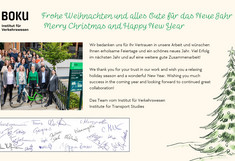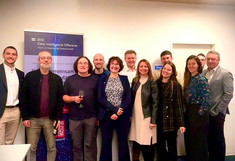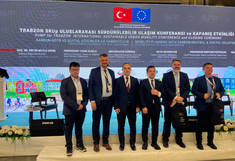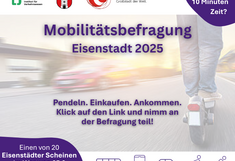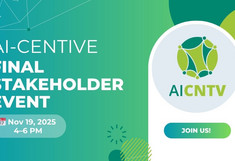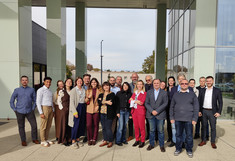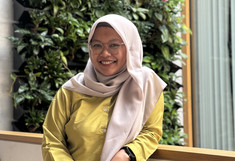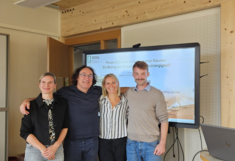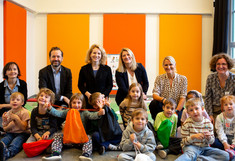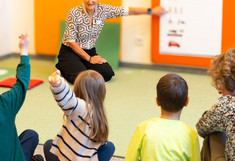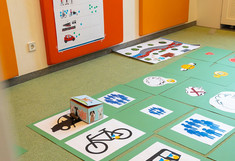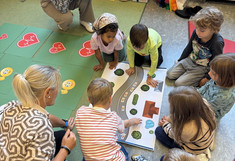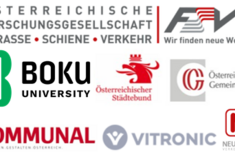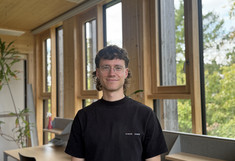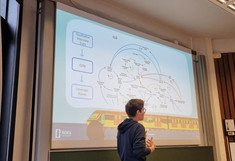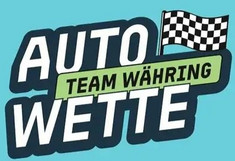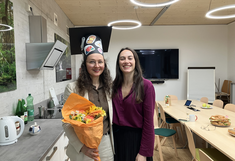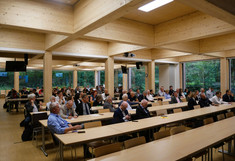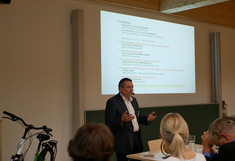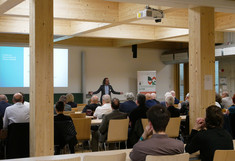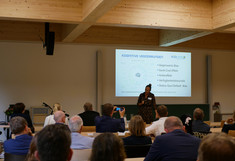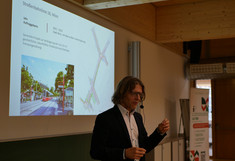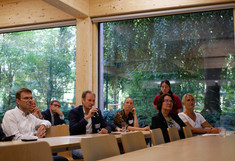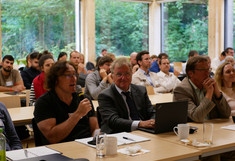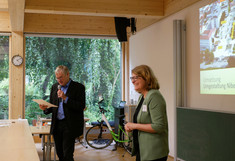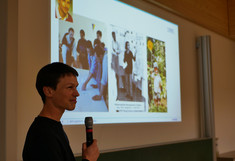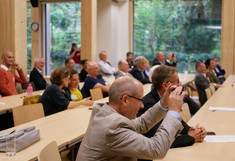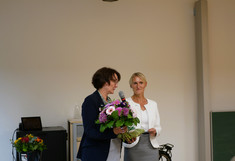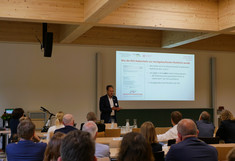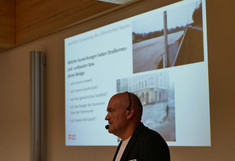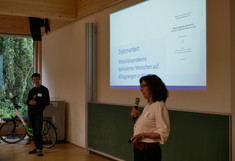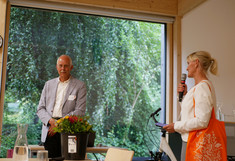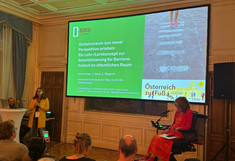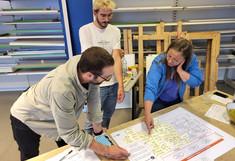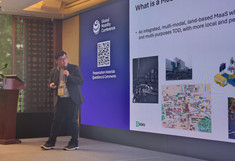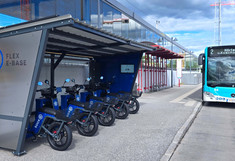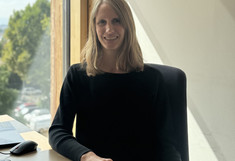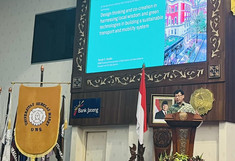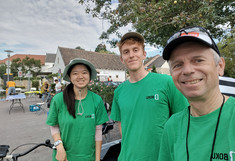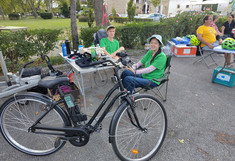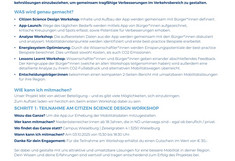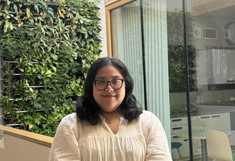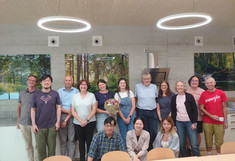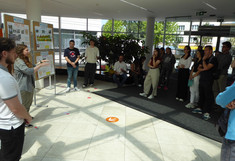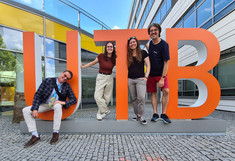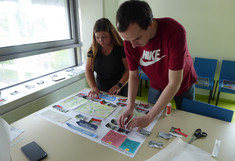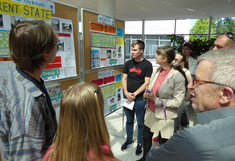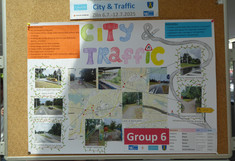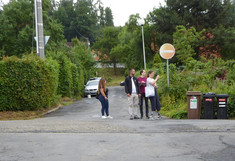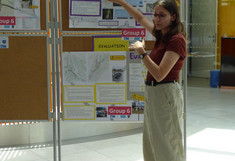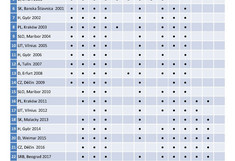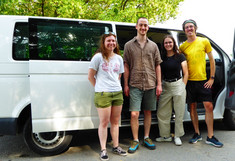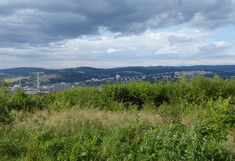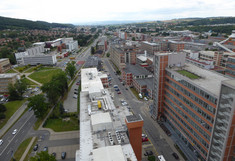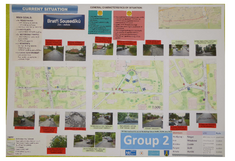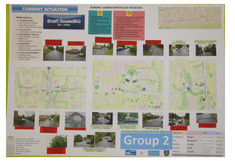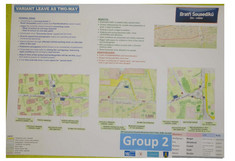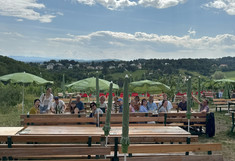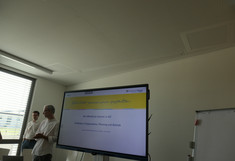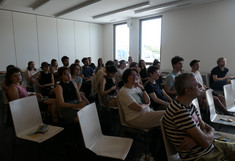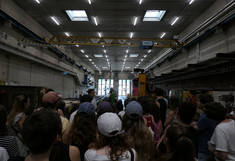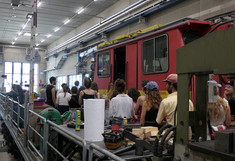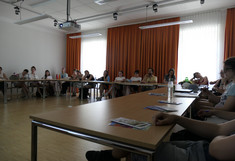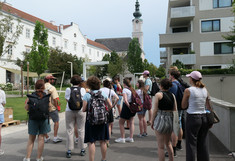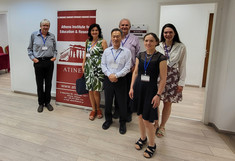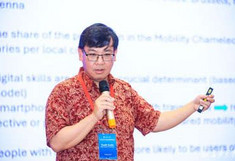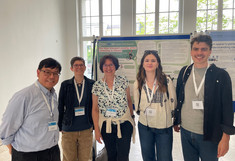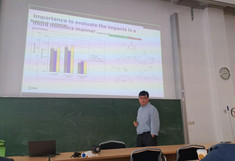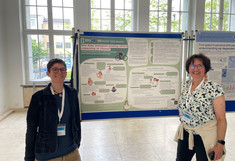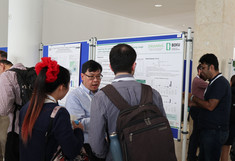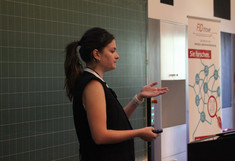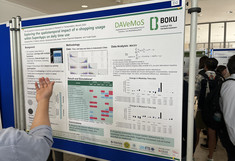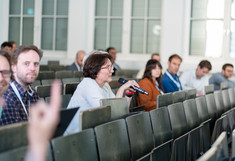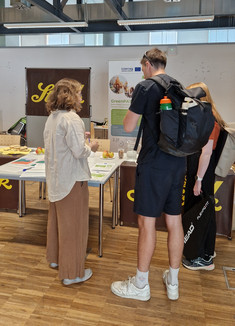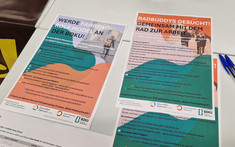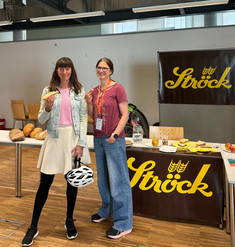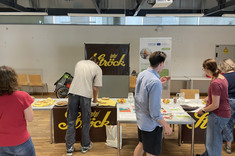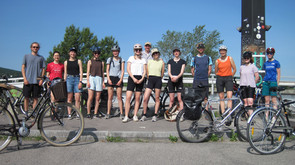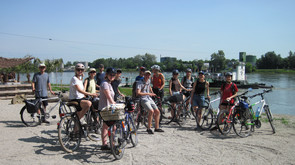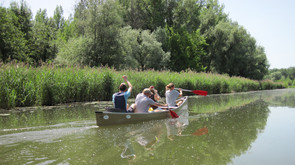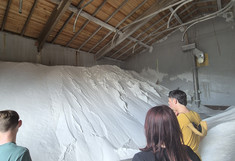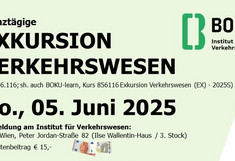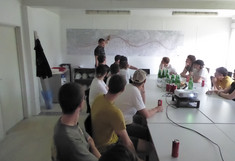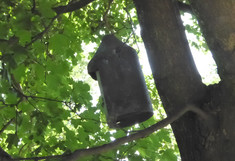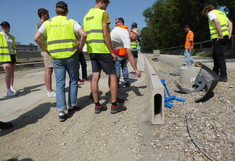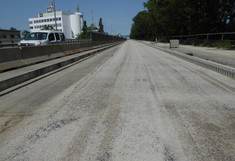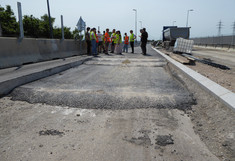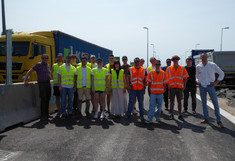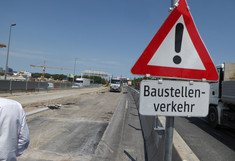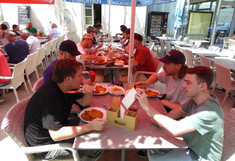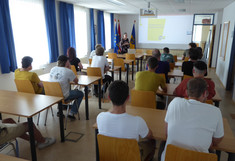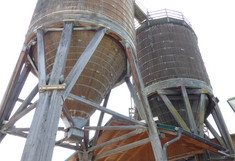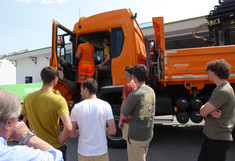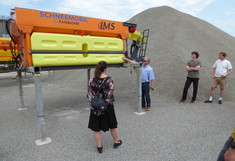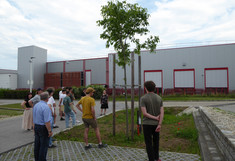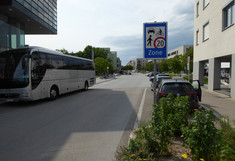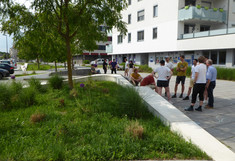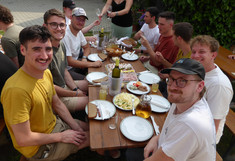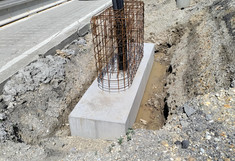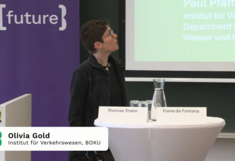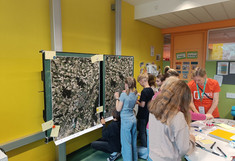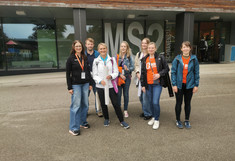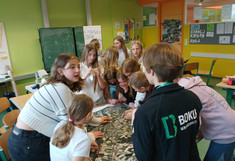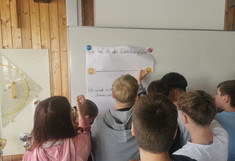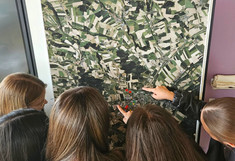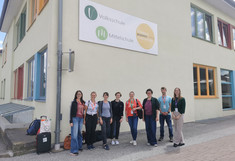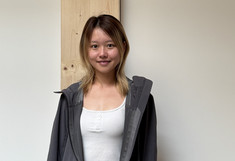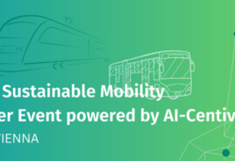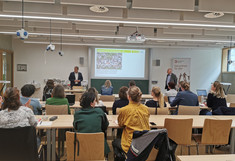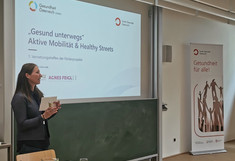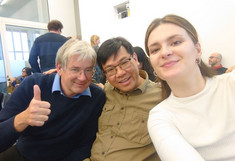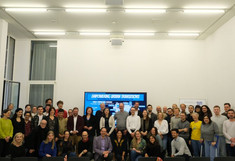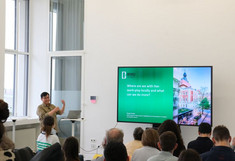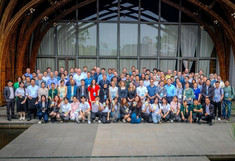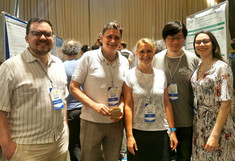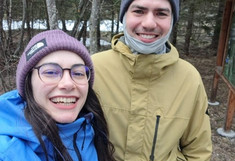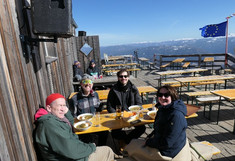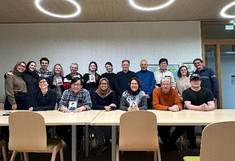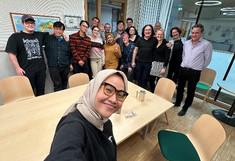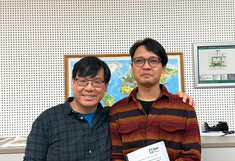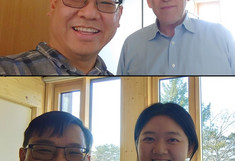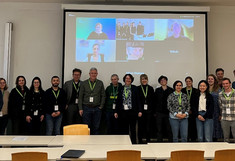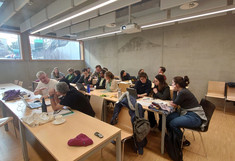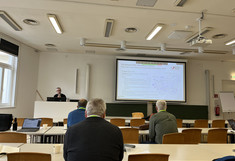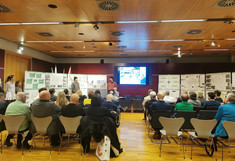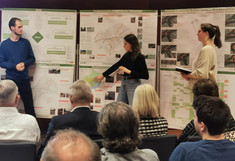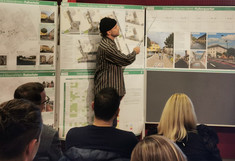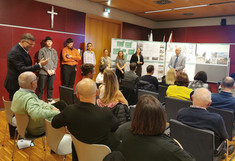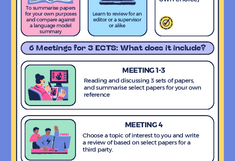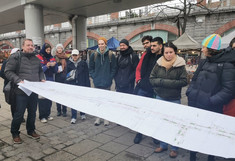2025
Here is the archive with news from 2025.
Prof. Yusak Susilo as Keynote Speaker at the 16th EASTS Conference in Surakarta, Indonesia
We are proud to share that Univ.Prof. Dr. Yusak Susilo represented the Institute for Transport Studies as the 1st plenary speaker at the 16th EASTS (Eastern Asia Society for Transportation Studies) Conference, held in Surakarta, Indonesia.
The biannual EASTS conference brings together 19 national transport associations from East, Southeast, and South Asia, with this year’s event hosting 600 attendees and featuring 400 papers from 20 countries.
In his plenary talk, Prof. Susilo emphasized the importance of design thinking and co-creation in leveraging local wisdom to build sustainable transport and mobility systems.
We congratulate Prof. Susilo on this honor and his contribution to advancing sustainable transport research on an international stage.
03.09.2025
BOKU Measurement Bike in Action in Burgenland
The first test day of our research project SARA – "Safe Cycling at Any Age" – took place on August 29, 2025, in Rust at Lake Neusiedl. From 9 a.m. to 6 p.m., individuals aged 6 and older had the opportunity to demonstrate their cycling skills. For this purpose, a parking lot in Rust was transformed into a cycling course for one day. Participants were tasked with completing various practical challenges, such as target braking, left and right turns, slalom riding, and emergency braking. To assess and analyze both subjective and objective cycling competencies, a variety of methods were employed, including surveys, expert observations, video recordings, and measurement sensors attached to the bicycles.
Among the bicycles used was the measurement bike from the Institute for Transport Studies at the University of Natural Resources and Life Sciences, Vienna (BOKU). This bike is equipped with sensors to measure speed, braking forces, steering angles, and pedaling cadence. A total of 23 out of the 97 participants completed their test rides using the BOKU measurement bike. Additionally, physiological parameters such as heart rate and skin conductance were recorded for these participants.
It was an exciting and insightful day and a fantastic opportunity to collect valuable data on the cycling skills of Austrians.
This project is funded by the Austrian Road Safety Fund (VSF).
02.09.2025
Invitation to the Citizen Science Design Workshop: Shaping Mobility Solutions Together
How can we make our daily journeys more environmentally friendly, safer, and more efficient? This is the central question of our project IMPETUS – and the best part: the public is actively involved!
We warmly invite you to join our Citizen Science Design Workshop and work with us to develop sustainable mobility solutions. Share your ideas and experiences and help shape the future of mobility.
Workshop Details
When: Friday, October 3, 2025, 3:30 PM–6:30 PM
Where: Campus Wieselburg, Zeiselgraben 4, 3250 Wieselburg (Building A, 1st Floor, Consumer Science Center)
What to Expect
In the Design Workshop, we will collaboratively design the content and structure of a mobility app that records daily routes and identifies areas for improvement in the transportation system. Your ideas and needs will directly influence the development process.
The workshop is the first step in an exciting process that includes the following stages:
- App Launch: Citizens will record routes, critical intersections, and hazardous spots.
- Analysis Workshop: Together, we will analyze the collected data and identify best-practice examples.
- Energy System Optimization: Researchers will calculate cost and CO₂ savings potential based on the findings.
- Lessons Learned Workshop: Reflection and feedback on the project results and discussion of possible next steps.
Who Can Participate?
Anyone over the age of 18 who lives or travels in Lower Austria (for work or leisure) and is motivated to actively shape the transportation system in their region is welcome to join.
Participants will receive a €30 compensation for their time and effort.
Get Involved!
Together, we will develop sustainable and practical solutions for better mobility – directly based on the real-life experiences of local communities. Your knowledge and engagement are key to the success of this project.
Register now: Register online here
If you are unable to secure a spot in the workshop, we will keep you updated on the project’s progress and future opportunities to get involved.
We look forward to your participation!
29.08.2025
Presentation at ISDC 2025: Tackling Transport Poverty in Austria
We are proud to announce that our research team—Astrid Gühnemann, Paul Pfaffenbichler, and Olivia Gold—presented their latest findings at the International System Dynamics Conference (ISDC 2025) on August 5, 2025.
Their presentation, titled "Using Causal Loop Diagrams and Leverage Points to Address Transport Poverty in Austria", focused on the challenges of transport poverty—how insufficient transport options limit access to essential services such as employment, education, and healthcare, thereby perpetuating cycles of inequality.
Key Insights from the Research
The team used semi-structured interviews and qualitative content analysis to identify the key variables, feedback loops, and time delays that contribute to transport poverty. These insights were visualized through Causal Loop Diagrams (CLDs), which help to understand the complex dynamics of the issue.
By applying Meadows' concept of leverage points, the research explored potential interventions to create more equitable and sustainable mobility systems. These interventions aim to improve access to essential services and promote fairness in transport systems.
Why This Matters
Transport poverty is not just a mobility issue—it directly impacts quality of life, access to opportunities, and social equity. Addressing this challenge is essential for building a fairer and more sustainable future.
We extend our gratitude to everyone who attended the session and contributed to the meaningful discussions. We look forward to continuing the conversation and working together on solutions to this critical issue.
22.08.2025
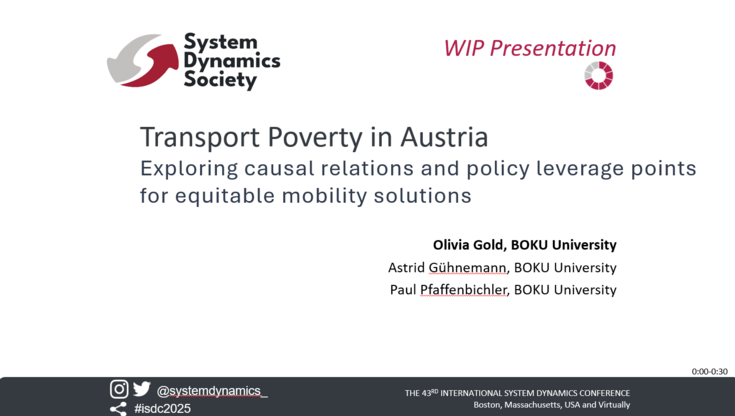
Welcome to the Institute for Transport Studies: Dr. MSc. Denissa Purba
We are delighted to welcome Dr. MSc. Denissa Purba as a new postdoctoral researcher at our Institute for Transport Studies! She is starting her work with us today and will enrich our team with her international expertise and commitment to innovative research.
Academic Background
Dr. Purba brings an impressive academic career:
- Bachelor’s degree in Civil Engineering from the prestigious Bandung Institute of Technology in Indonesia.
- Master’s and PhD in Civil Engineering from the University of Illinois Urbana-Champaign, one of the world’s leading universities in this field.
Her solid knowledge in civil engineering and her international experience make her a valuable addition to our institute.
Her Role at the Institute
Dr. Purba will be working on the research project SEE-FAR, which focuses on the complex impacts of automation and electrification in freight transport. The goal of the project is to develop sustainable and cost-efficient solutions for freight transport.
We Look Forward to Working Together!
We warmly welcome Dr. MSc. Denissa Purba and look forward to working with her on innovative solutions for the future of transport planning and mobility.
18.08.2025
Farewell and Best Wishes to Martyna Fidler
Last week marked Martyna Fidler's final in-person working day at the Institute for Transport Studies (IVE), BOKU Vienna. Since joining us in 2020, Martyna has been an indispensable team member, significantly contributing to projects and research in the fields of virtual reality and sustainable mobility.
In autumn, Martyna will take on a new challenge at the University of Žilina. While we will miss her expertise and dedication at the institute, we are excited to continue collaborating with her on topics related to virtual reality.
Key Contributions at BOKU
Martyna was involved in several groundbreaking projects, including:
- AI-Based Optimisation of Incentive Schemes for Sustainable Mobility (2022–2025), led by Astrid Gühnemann.
- BMK Endowed Professorship for Digitalisation and Automation in Transport and Mobility Systems (2019–2025), led by Yusak Susilo.
Selected Publications
Martyna’s research has left a lasting impression, with notable publications such as:
- "Establishing an External Validity of Virtual Environments in a Micro-Mobility Context" (2025, Transportation).
- "Is Physical Travel Becoming Obsolete in the Era of the Metaverse?" (2022, Österreichische Zeitschrift für Verkehrswissenschaft).
- "Modelling Risk Perception Using a Dynamic Hybrid Choice Model and Brain-Imaging Data" (2021, Transportation Research Part C).
- "Cycling in Virtual Reality: Modelling Behaviour in an Immersive Environment" (2020, Transportation Letters).
A Personal Farewell
Martyna enriched our team with her expertise, enthusiasm, and innovative mindset. She will be missed not only as a colleague but also as a person. Her dedication and ability to approach complex topics with creativity and precision have left a lasting mark on the institute.
Looking Ahead
We are confident that Martyna will be just as successful at the University of Žilina and wish her much success and joy in her new role. At the same time, we look forward to continuing to collaborate with her on exciting projects in virtual reality and sustainable mobility.
Martyna’s work has not only advanced virtual reality technologies in transport research but also provided important insights for designing sustainable and safe mobility systems.
We thank Martyna for her outstanding work and wish her all the best for her future endeavors!
07.08.2025
Children's University 2025 at BOKU – Experiencing and Understanding Mobility
This week, as part of the Children's University 2025, BOKU once again opened its doors to young explorers – and the Institute of Transport Studies participated with two exciting courses.
"At 80 Through the Streets?" – for children aged 10 to 12
What does road traffic feel like from the perspective of an 80-year-old person? In this seminar, children were able to experience it firsthand – using an aging suit, a wheelchair, and a white cane. It quickly became clear how challenging public spaces can be for older adults or people with mobility impairments.
Using the app "What’s up?", the children documented their own impressions as pedestrians, noting what works well in public spaces and where improvements are needed. Measuring street cross-sections with distance meters was also part of this hands-on exercise.
The children experienced how exhausting and unsafe public spaces can feel for older people – and developed an understanding of why accessibility and consideration are so important.
"What Drives You?" – for children aged 7 to 9
This workshop focused on sustainable mobility. The children shared their own school routes and reflected on their choice of transportation. At interactive stations, they learned:
- how different modes of transport impact the environment and health,
- how to read bus schedules and route information,
- and demonstrated their skills on a scooter course.
The correct behavior when crossing streets was also discussed.
Our conclusion: Enthusiasm, curiosity, and lots of smart questions!
A big thank you to all the children for participating – and to the entire team for making it happen!
Non-Motorized Adventures: The 24th Cycling Excursion of the Institute for Transport Studies
Under the motto "non-motorized with bike and boat", the 24th Cycling Excursion of the Institute for Transport Studies at BOKU University took place on June 6, 2025. Organized by the institute and led by Michael Meschik, who has been teaching the course "Walking and Cycling" (856.110) since the 1994/95 academic year, this excursion has been a tradition since 1997. It has only been canceled twice due to flooding and twice more due to COVID-19.
Starting at the northern end of the Danube Island, the participants (this year, 13 students) cycled in perfect weather through Langenzersdorf and Bisamberg to the ferry crossing. The ferry took them from the left bank in Korneuburg to the right bank in Klosterneuburg. The route continued upstream along the Klosterneuburg canal. After crossing the Danube again at the Greifenstein power plant, the group reached the "Gießgang" in the Stockerau wetlands. Here, the highlight of the day awaited: a four-hour canoe trip on the old Danube arm, paddling upstream. The trip included a well-deserved lunch break, optional swimming, and a short gymnastics session to loosen up tired muscles.
The return journey from Stockerau led the group back on bicycles along the B3 state road through Spillern and Leobendorf, offering scenic views of Kreuzenstein Castle, before arriving in Korneuburg. Along the way, participants received explanations about transport infrastructure and local points of interest.The day concluded with a final discussion at the "Gasthaus zur Linde" in Korneuburg, where the group reflected on the various walking and cycling facilities they had observed, shared their impressions of the excursion, and enjoyed a well-earned meal. With at least 45 kilometers of cycling (many participants covered even more due to their individual journeys to and from the meeting point) and the canoe trip, the excursion provided not only valuable insights into sustainable mobility but also an opportunity to engage in physical activity and counteract sedentary habits.For the journey home, participants were guided to the Korneuburg train station, while some chose to cycle back to Vienna. The overwhelmingly positive feedback and the excellent atmosphere make us look forward to the 25th Cycling Excursion next year!
Another good week for Driving Urban Transitions Partnership funded project unlock15. They had an opportunity to participated in Empowering Urban Transitions: Accessibility by Proximity in the 15-Minute City hosted by TUM Accessibility Planning where they had an opportunity to present recent outputs from DREAMS project, and then followed by their first in-person unlock15 consortium meeting in Augsburg and in Munich

